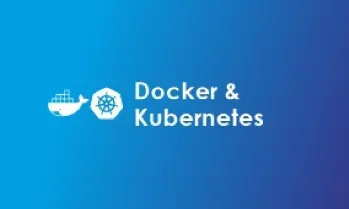
Docker and Kubernetes
Course Overview of Professional Online Docker and Kubernetes Training in Bangalore
The Professional Online Docker and Kubernetes Training course is designed to provide participants with a comprehensive understanding of containerization and orchestration technologies. Docker is a platform for developing, shipping, and running applications in containers, while Kubernetes is an open-source system for automating the deployment, scaling, and management of containerized applications. This Docker and Kubernetes Training in Bangalore covers key concepts, features, and best practices for using Docker and Kubernetes to build, deploy, and manage modern applications efficiently.
1. Develop skills to containerize applications using Docker.
2. Understand how to orchestrate and manage containerized applications with Kubernetes.
3. Learn best practices and strategies for deploying and scaling applications in a cloud-native environment.Learn software skills with real experts, either in live classes with videos or without videos, whichever suits you best.
Description
This course begins with an introduction to Docker and Kubernetes, covering containerization concepts, Docker images, and containers, as well as Kubernetes architecture and components. Participants will learn how to use Docker to build and manage containers and how to use Kubernetes for orchestrating containerized applications. The course also explores advanced topics such as persistent storage, networking, and security in containerized environments. Practical examples, hands-on labs, and real-world scenarios will be used to reinforce theoretical concepts.1. Gain practical experience with hands-on Docker and Kubernetes exercises.
2. Build and manage containerized applications using Docker and Kubernetes.
3. Explore advanced features and integration with cloud-native technologies.Course Objectives
The primary objectives of the Docker and Kubernetes course are as follows:1. Introduction to Docker: Provide an overview of Docker, its components, and how it enables containerization of applications.
2. Docker Images and Containers: Learn how to create and manage Docker images and containers for application development and deployment.
3. Docker Networking and Storage: Explore Docker networking concepts and persistent storage options for containerized applications.
4. Introduction to Kubernetes: Understand Kubernetes architecture, components, and how it facilitates container orchestration.
5. Kubernetes Pods and Services: Learn about Kubernetes pods, services, and how they work together to manage containerized applications.
6. Kubernetes Deployments and ReplicaSets: Explore how to use deployments and ReplicaSets for managing application scalability and availability.
7. Kubernetes ConfigMaps and Secrets: Understand how to manage configuration and sensitive data using ConfigMaps and Secrets in Kubernetes.
8. Persistent Storage in Kubernetes: Learn about persistent storage solutions and how to manage stateful applications in Kubernetes.
9. Kubernetes Networking: Cover Kubernetes networking concepts, including service discovery and load balancing.
10. Security in Docker and Kubernetes: Explore security best practices for Docker containers and Kubernetes clusters.
11. Monitoring and Logging: Learn how to monitor and log containerized applications and Kubernetes clusters effectively.
12. Advanced Kubernetes Topics: Delve into advanced topics such as Helm, custom resource definitions (CRDs), and Kubernetes operators.Prerequisites
1. Basic understanding of operating systems and command line interfaces.
2. Familiarity with Linux fundamentals.
3. Knowledge of basic networking concepts.
4. Understanding of cloud computing principles (optional but beneficial).
5. Experience with software development and deployment (helpful but not required).Who Can Learn This Course
This course is suitable for a diverse range of individuals, including:1. DevOps Engineers: Professionals looking to enhance their skills in containerization and orchestration with Docker and Kubernetes.
2. System Administrators: Individuals interested in managing and automating containerized application deployments.
3. Software Developers: Developers seeking to understand containerization and orchestration for modern application development.
4. Cloud Engineers: Professionals working with cloud platforms who want to leverage Docker and Kubernetes for cloud-native application deployment.
5. IT Professionals: Individuals involved in the deployment and management of applications and infrastructure who want to learn about container technologies.
6. Students and Graduates: Individuals pursuing degrees in computer science or related fields with an interest in modern application deployment technologies.
7. Project Managers: Individuals overseeing projects involving containerized applications and seeking to understand Docker and Kubernetes capabilities.
8. Anyone Interested in Containerization: Enthusiasts curious about leveraging Docker and Kubernetes for developing, deploying, and managing scalable applications.The Docker and Kubernetes course is designed to cater to both beginners and individuals with some experience in software deployment, providing a solid foundation in containerization and orchestration concepts and practical skills for managing modern applications.
Course Curriclum
Training Features
Comprehensive Curriculum
Master web development with a full-stack curriculum covering front-end, back-end, databases, and more.
Hands-On Projects
Apply skills to real-world projects for practical experience and enhanced learning.
Expert Instructors
Learn from industry experts for insights and guidance in full-stack development.
Job Placement Assistance
Access job placement assistance for career support and employer connections.
Certification upon Completion
Receive a recognized certification validating your full-stack development skills.
24/7 Support
Access round-the-clock support for immediate assistance, ensuring a seamless learning journey.
Upcoming Batches
Placed Students
Enroll now and join our alumni.
Explore More Courses
Enroll for : Docker and Kubernetes
Start Date: 2024-10-01
Mentor: Working Professional
Duration: 3 Months
